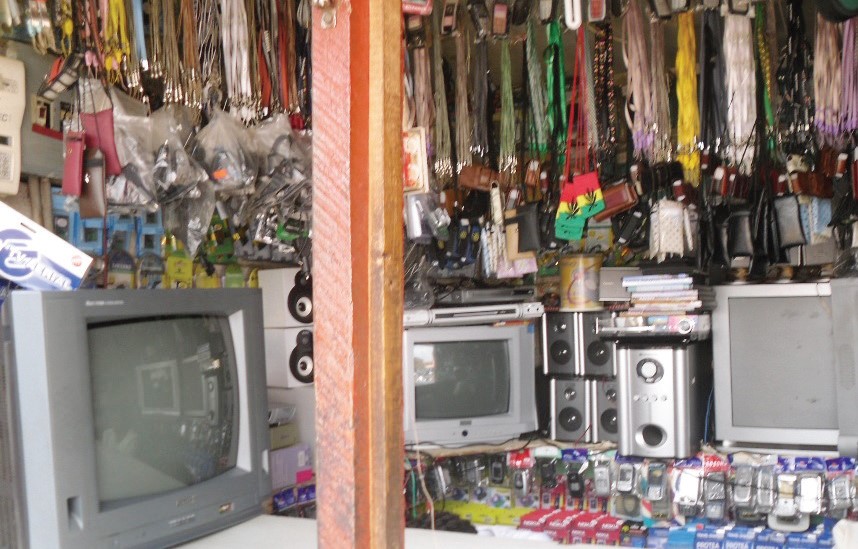When traders put consumers’ at risk
Despite the potential risks that fake and expired products pose on consumers, Mariam Machemba from Mangochi District but currently living in Mzimba, rues the tendency by some traders to sell them.
Machemba, 32, says she has always wondered why some traders would stoop so low to continue selling products that are past their sale-by-date.

“I usually check expiry date on the products I want to buy because I don’t trust most of these traders when it comes to disposing of expired goods,” he says.
‘‘Just last week, I failed to buy the products I wanted in one of the shops because I discovered that they were past their expiry date. But I shudder to realise that most Malawians just buy products without minding about expiry dates.
“It is a common but sad trend to see most buyers just buying without the zeal to check when the product is expiring.”
According to Machemba, most of the products she has observed with expiring dates are food related such as bread, milk, meat, and biscuits, among others.
‘“I believe consuming expired products could pose health hazard as most of these expired goods could be poisonous. The expired dates are not put there just for fun. They are there to serve a purpose to consumers. Let Malawians start observing expiry dates on products,”says Machemba.
Another consumer, Esnath Banda of Machinjiri in Blantyre, says she has bought food in most eateries only to realise that they had gone bad.
“Most of the cases of expired foods are also common in restaurants. You go to an eatery you order your meals only to realise the relish is smelling like it is rotten.
“In most cases, people who run such places are not even willing to help you out,” says Banda.
A student at the Catholic University, Stanley Chipembele Khumalo, says most traders have become heartless in their pursuit for profits.
He says: “It looks like all they care about is making profits from their products, as such, they don’t mind whether the products they are selling have expired or not.
“You go into shops and find that some goods are not even properly labelled and shelf life erased. These shops are surely posing a threat to our lives as we buy these products without realising they are tampered with.”
Khumalo says he once bought eggs that had gone bad.
“Most common cases of expired products concern perishable products such as milk, bread but for me it was eggs. I went home only to realise they had gone bad just a day after buying them. I feel I bought them after they had already started getting bad,’’ he says.
However, a trader operating at Mzimba Boma says most of the times it is not intentional for traders to sell expired products.
“‘Most of the products we sale have varying expiry dates at the time we buy them. We put them on shelves when they are not expired.
“With time, we forget to check whether they have expired or not as a result when a consumer notices it, they should always bring it to our attention,” says a trader who did not want to be identified.
Cases of traders selling expired products in Malawi are not a new phenomenon.
The Malawi Bureau of Standards (MBS) has been pouncing on companies and traders found on the wrong side of the law in as far as selling such expired goods is concerned.
In 2022, MBS fined Central African Produce for selling expired maize cream. A follow up by MBS revealed that the expired maize flour was being repackaged for sell by Central African Produce in Limbe.
In December 2022, some consumers sued Sana Shops in Mzuzu for selling them expired chicken portions.
All these cases show that most consumers could be buying expired products unknowingly.
The malpractice of selling expired or defective commodities is against Section 39 of the MBS Act and attracts a penalty of K1million and a custodial sentence of one year upon conviction by the courts.
Four years ago, an MBS official said organisation had on several occasions caught some business operators changing products’ shelf life dates.
“It is a challenge that we are dealing with. We want to assure the public that we are going to deal with this malpractice because it is unfair to the consumers to be falsifying information,” he said.
Consumers Association of Malawi executive director John Kapito in an interview said consumers should be proactive by ensuring they check expiry dates of the products they want to buy to avoid consuming products that have expired.
‘‘Consumers have rights and obligations to ensure they buy products that are of high quality and without defects and it is equally important for providers of goods and services to label all their products with appropriate information, including expiry dates. This is is mandatory,” he says.
Kapito says it is the responsibility of consumers to ensure that before they buy or pay for any product, they have to check all labelling, including expiry date.
“It is without prudence if consumers indulge in buying products without reading appropriate labels before they pay money and if the products do not have appropriate information, consumers should never buy purchase the products,” he says.
A public health expert James Katema based at Zomba District Health Office in an interview says eating expired foods that have past their sale-by-date can expose your body to harmful bacteria that can cause vomiting, diarrhoea and fever.
“Once a product has expired, it changes its chemical composition and becomes a health risk. Expired products are a health hazard,” he says.
“Expired food must be avoided at all costs. One could develop symptoms of food poisoning. Some of the symptoms could be fever, chills, stomach cramps, nausea…expired food may contain harmful bacteria such as E.coli and Bacteroids,” he says.
Ministry of Trade and Industry public relations officer Mike Van Kamande admits that some shop owners defy the rules of fair trading by failing to dispose of expired products.
He says: “The practice of selling expired products is done by unscrupulous traders and is really rampant among some sections of traders.
“As ministry, we have in the past pounced on such traders.”
Kamande says the ministry has a section called Trade In Goods Department dedicated that is charged with the responsibility of inspecting shops and business places to ensure they are complying with trade and industry regulations, among others, not to sale expired products.
“The department conducts inspection visits all over the country and is mandated to confiscate the goods or close the shops and bring the owners to a disciplinary hearing’’, said Kamande
Kamande, however, admits that inspection of shops across the country has been slowed down because of low staffing levels within the ministry.
“There is a high rate of vacancies which has not spared the Trade In Goods Department which has crippled its responsibilities.
“However, within its means the department is doing its best to go around and conducts inspections,” he says.
Chikumbutso Ngwira, who works for Mzimba Community Radio says at one time he bought meat from one of the shops at Mzimba Boma only to realise it is rotten.
He says: “I returned it to the shop and the shop manager ordered his workers to offer give me another meat.
“I want to urge all consumers to be cautious when buying products in shops by checking expiry dates because most of these shops hardly dispose of rotten products.”





